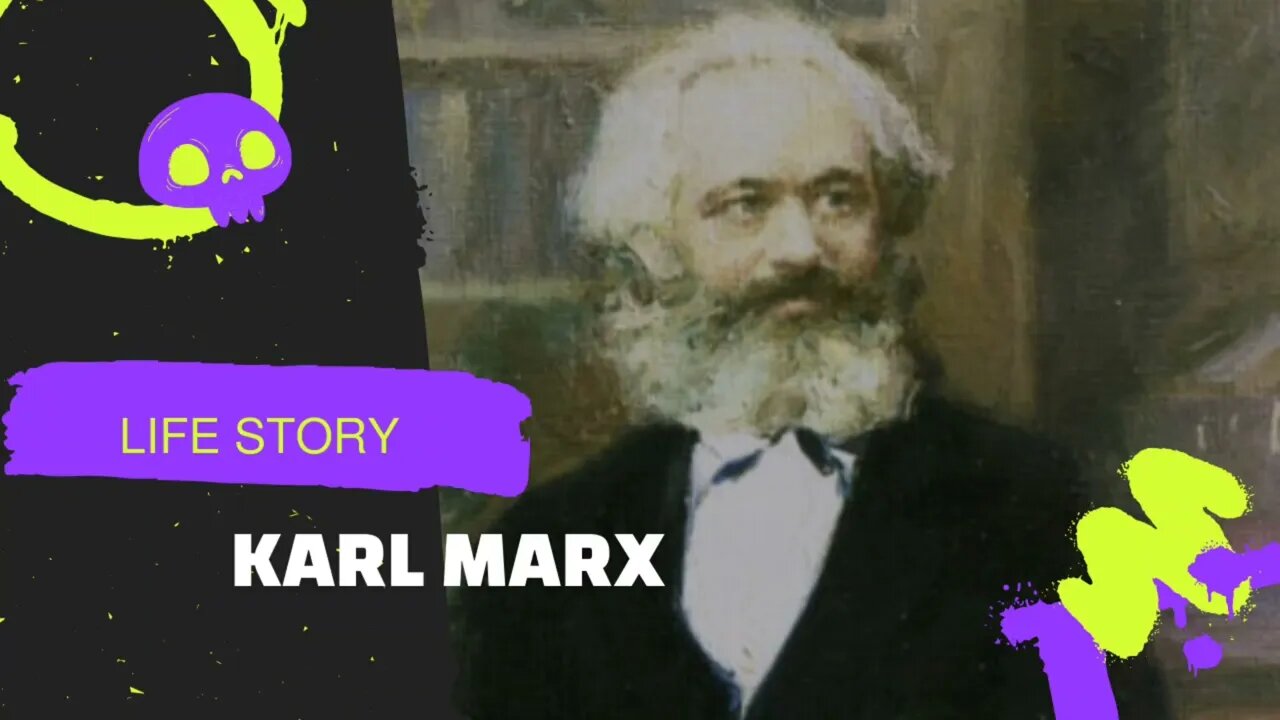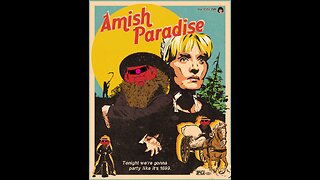Premium Only Content

karl marx
As a college understudy, Karl Marx (1818-1883) joined a development known as the Young Hegelians, who unequivocally reprimanded the political and social foundations of the day. He turned into a writer, and the extreme idea of his works would ultimately get him ousted by the legislatures of Germany, France and Belgium. In 1848, Marx and individual German mastermind Friedrich Engels distributed "The Communist Manifesto," which presented their idea of communism as a characteristic consequence of the contentions intrinsic in the entrepreneur framework. Marx later moved to London, where he would reside until the end of his life. In 1867, he distributed the main volume of "Capital" (Das Kapital), in which he spread out his vision of free enterprise and its unavoidable propensities toward implosion, and partook in a developing global specialists' development in light of his progressive hypotheses.
Karl Marx's Early Life and Education
Karl Marx was brought into the world in 1818 in Trier, Prussia; he was the most established enduring kid in a group of nine youngsters. Both of his folks were Jewish, and slid from a long queue of rabbis, yet his dad, a legal counselor, switched over completely to Lutheranism in 1816 because of contemporary regulations banishing Jews from higher society. Youthful Karl was purified through water in a similar church at 6 years old, yet later turned into a skeptic.
Following a year at the University of Bonn (during which Marx was detained for tipsiness and battled a duel with another understudy), his stressed guardians enlisted their child at the University of Berlin, where he concentrated on regulation and reasoning. There he was acquainted with the way of thinking of the late Berlin teacher G.W.F. Hegel and joined a gathering known as the Young Hegelians, who were testing existing foundations and thoughts on all fronts, including religion, reasoning, a morals and legislative issues.
Subsequent to accepting his certification, Marx started composition for the liberal vote based paper Rheinische Zeitung, and he turned into the paper's supervisor in 1842. The Prussian government restricted the paper as too extremist the next year. With his new spouse, Jenny von Westphalen, Marx moved to Paris in 1843. There Marx met individual German émigré Friedrich Engels, who might turn into his long lasting partner and companion. In 1845, Engels and Marx distributed an analysis of Bauer's Young Hegelian way of thinking named "The Holy Father."
B
At that point, the Prussian government interceded to get Marx ousted from France, and he and Engels had moved to Brussels, Belgium, where Marx revoked his Prussian citizenship. In 1847, the recently established Communist League in London, England, drafted Marx and Engels to state "The Communist Manifesto," distributed the next year. In it, the two
Scholars portrayed all of history as a progression of class battles (verifiable realism), and anticipated that the impending common unrest would clear to the side the industrialist framework for good, making the workingmen the new decision class of the world.
Karl Marx's Life in London and "Das Kapital"
With progressive uprisings immersing Europe in 1848, Marx left Belgium not long prior to being ousted by that nation's administration. He momentarily got back to Paris and Germany prior to getting comfortable London, where he would reside until the end of his life, in spite of being denied British citizenship. He filled in as a writer there, including 10 years as a journalist for the New York Daily Tribune, however never fully figured out how to make enough to get by, and was upheld monetarily by Engels. In time, Marx became
Progressively detached from individual London Communists, and zeroed in additional on fostering his financial hypotheses. In 1864, in any case, he helped tracked down the International Workingmen's Association (known as the First International) and composed its debut address. After three years, Marx distributed the main volume of "Capital" (Das Kapital) his magnum opus of monetary hypothesis. In it he communicated a longing to uncover "the monetary law of movement of current culture" and spread out his hypothesis of private enterprise as a powerful framework that contained the seeds of its own implosion and ensuing victory of socialism. Marx would use whatever is left of his life dealing with compositions for extra volumes, yet they stayed incomplete at the hour of his demise, of pleurisy, on March 14, 1883.
-
 1:56:17
1:56:17
Badlands Media
12 hours agoBaseless Conspiracies Ep. 127: The Satanic Fed Op Behind 764, Pedo Networks & Psychological Warfare with Special Guest, BK
60.2K30 -
 1:05:32
1:05:32
Donald Trump Jr.
12 hours agoNews Not Noise, Live with Power the Future's Daniel Turner | TRIGGERED Ep.231
172K82 -
 28:01
28:01
Side Scrollers Podcast
5 hours agoNEW SERIES! Smash JT Has a Full-On Meltdown | Nerd Duel ft. Lady Desiree & You, Me & The Movies
28.1K2 -
 2:13:28
2:13:28
I_Came_With_Fire_Podcast
7 hours agoMEAD & MENTAL HEALTH WITH I CAME WITH FIRE AND VOC!!!
38K4 -
 1:10:04
1:10:04
John Crump Live
4 hours ago $2.59 earnedYes I talked To The ATF
30.7K3 -
 6:01:28
6:01:28
Amish Zaku
7 hours agoVerDanceKey Warzone - Birthday Fun
33.1K5 -
 LIVE
LIVE
NeoX5
4 hours agoKhazan: The Road Less Taken | Part 5-2 | Rumble Studio | Rumble Gaming
274 watching -
 LIVE
LIVE
TwinGatz
10 hours ago🔴LIVE - He Is Doing His Best | ARMA Reforger
558 watching -
 54:40
54:40
LFA TV
14 hours agoSee God in the Trade War | TRUMPET DAILY 4.7.25 7PM
55.5K12 -
 1:18:30
1:18:30
Sarah Westall
7 hours agoNew Study: EMFs Literally Put You into a Brainwave Cage; Reclaiming your Mind w/ Ian & Philipp
71.3K20